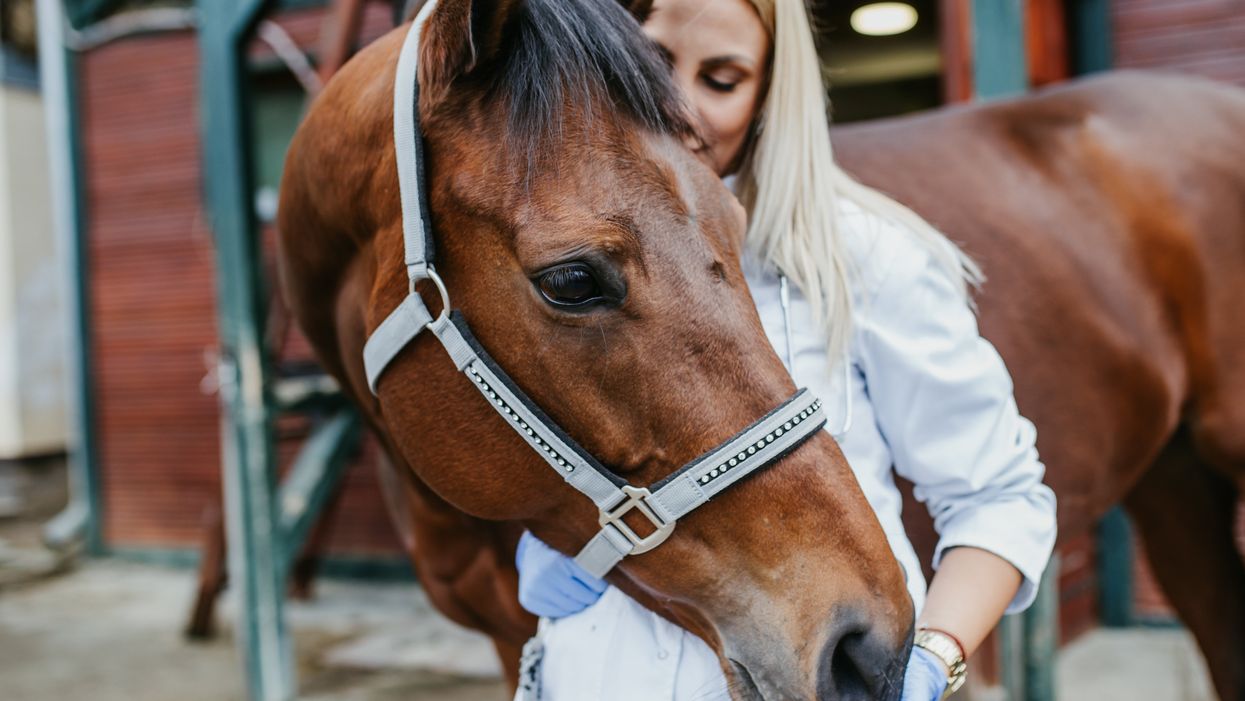Requests for ivermectin, the notorious deworming medication, have skyrocketed in recent weeks, the Center for Disease Control and Prevention (CDC) reports.
As noted nearly a month ago, vaccine skeptics and Covid truthers have turned to horse-strength dewormer to treat their Covid infections, as anti-vaccination advocates and even certain medical groups — like America’s Frontline Doctors, of which Dr. Stella Emmanuel, the Trump-approved conspiracy theorist who said women are impregnated by “demon sperm” in their sleep and alien DNA is used in medicine, is a member — are pushing the questionable “treatment.” But seeing as people have gotten quite sick from taking, well, medication intended for horses, they’ve started pursuing actual prescriptions for the (human) drug. Now, pharmacists are seeing shortages of the drug, according to The New York Times.
Travis Walthall, a pharmacist in Kuna, Idaho, a small town with no more than 20 thousand residents, told the publication that he filled over 20 ivermectin prescriptions this summer alone, while he customarily only fills two or three. This last week however, the pharmacy couldn’t even acquire the drug from their suppliers, as they were all out. “I’m like, gosh, this is horrible,” he told The Times, shocked at how many people would willingly take an unapproved treatment for Covid.
Despite there being little to no evidence that ivermectin actually prevents or treats the coronavirus, anti-vaccination groups continue to push the narrative that it’s a miracle drug, encouraging each other to purchase it in the form of horse and livestock dewormer. In fact, the drug has gained such notoriety in these communities that the surge in purchases, and subsequent reviews, has actually warped Amazon reviews of horse paste.
But as one might expect, humans digesting drugs designed for stallions doesn’t ten to end well. Poison control centres have seen a drastic increase in calls regarding ivermectin since July, with 70 percent of calls to Mississippi poison control have been from people who ingested ivermectin in the form meant for livestock, according to CDC.
“Everyone wants some cure for Covid because it’s such a devastating illness,” Dr. Shawn Varney, a toxicologist and medical director for the South Texas Poison Center who’s received hundreds of calls regarding ivermectin exposure this year, told The Times. “I plead with people to stop using ivermectin and get the vaccine because it’s the best protection we have at this point. Everything else is risk after risk.”
Varney also notes the risk of unintentionally taking doses far too high for humans, as improperly ingesting horse paste can potentially lead to individuals taking “10 to 15 times the amount” meant for humans. “People are going to animal feed stores and getting a formulation that’s highly concentrated because it’s for 1,000-pound animals,” he said. “They’re opening themselves to great potential harm.”
A review of 14 ivermectin studies, cited by the New York Times, found that no study proved the drug’s effectiveness in preventing or treating Covid. 31 additional studies are still ongoing.
“There is great interest in repurposing well-known inexpensive drugs such as ivermectin that are readily available as an oral tablet,” Maria-Inti Metzendorf and Stephanie Weibel, the authors of the review, told The Times. “Even if these circumstances seem ideal, the results from the available clinical studies carried out so far cannot confirm the widely advertised benefits.”
Another study, one of the largest trials on ivermectin for Covid-19, was discontinued “because the drug had been shown to be no better than a placebo at preventing hospitalization or prolonged stay in the emergency room,” the New York Times reports, adding that, “Dr. Edward Mills, a professor at McMaster University who led the study, which enrolled more than 1,300 patients, said the team would have discontinued it earlier were it not for the level of public interest in ivermectin.”
“The data safety person said, ‘This is now futile and you’re offering no benefit to patients involved in the trial,’” Dr. Mills told the publication.
Similarly, Dr. López-Medina, a researcher at the Center for Pediatric Infectious Diseases in Colombia, conducted a randomised trial on the effects of ivermectin and concluded that ivermectin had “no statistically significant effect” on the prevention and/or duration of the virus.
“It appears to be a safe medication, but that is not enough to prescribe it openly,” Dr. López-Medina said. “People should use it in trials but not necessarily to treat patients. The data is not robust enough to support its use.”
What researchers and medical professionals — and much of the general public — find most shocking, however, is how many people are opting to take ivermectin for horses over simply getting the free — and highly effective — vaccines.
“The only functional strategy we have for getting control of Covid-19 is vaccination,” Dr. Irwin Redlener, a physician in New York and founding director of the National Center for Disaster Preparedness at Columbia University, said. “If people are not getting vaccinated because of nonsense they’re reading on the internet, that interferes with our ability to get this pandemic under control.”














